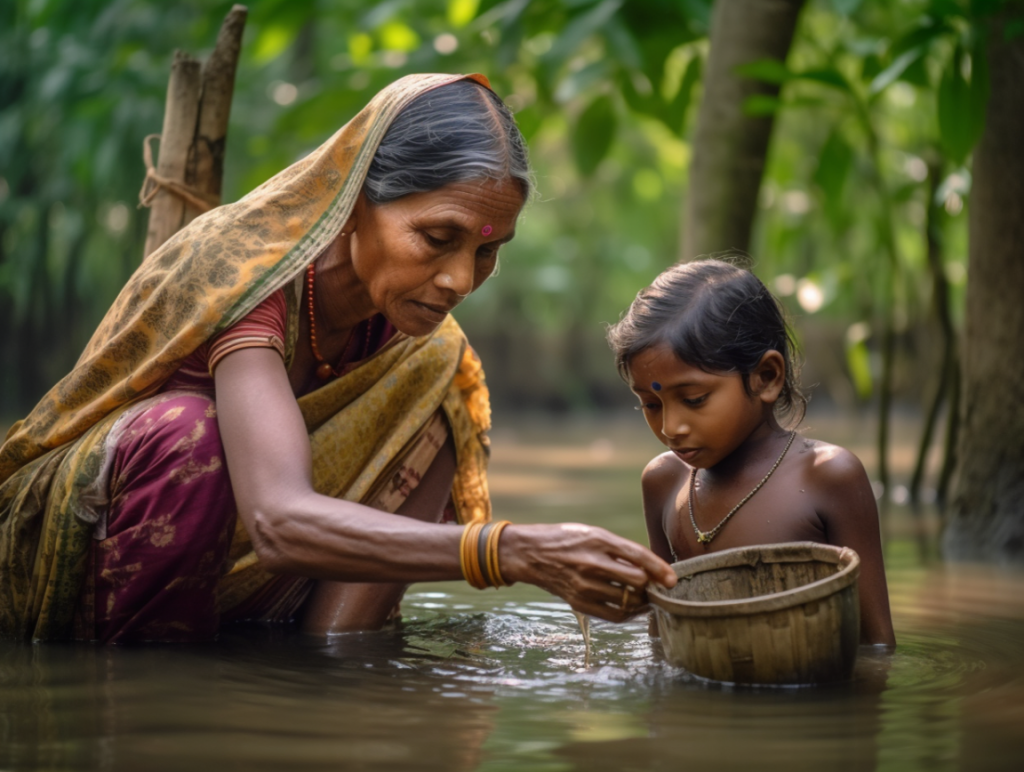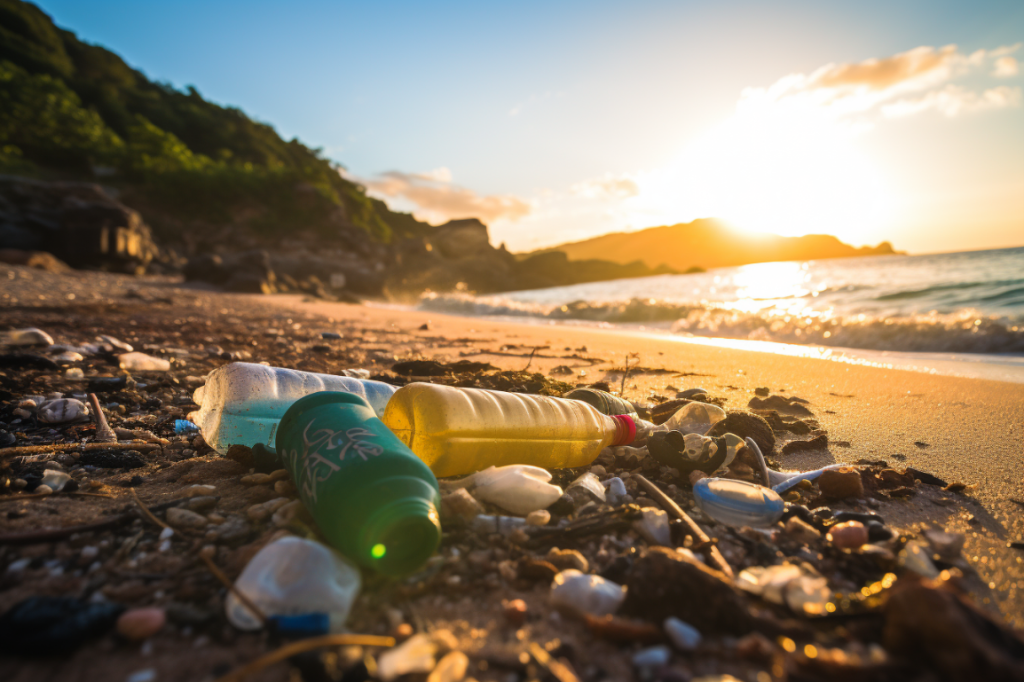
By Jawaria Zahoor
Imagine a world without the vibrant colors of nature, without the soothing sound of raindrops, without the gentle breeze that caresses your face. A world where the sun’s rays scorch the earth, where the air is thick with pollution, and where the once mighty oceans are now lifeless and barren.
Climate change is one of the most pressing issues of our time, and its impact on youth cannot be ignored. As the world continues to warm, the consequences are becoming more severe and are affecting young people in many ways. From rising sea levels threatening coastal communities to extreme weather events disrupting education and livelihoods, the effects of climate change are already displacing millions and jeopardizing the future of young people worldwide. Many young individuals face the reality of food and water insecurity, as climate change disrupts agricultural patterns and access to clean water sources. This, in turn, can lead to malnutrition, health problems, and hindered development, putting a significant burden on young shoulders.
Young people today are inheriting a world in flux. The very foundation of their future – a stable climate, fertile lands, and abundant resources – is under threat. This burden of uncertainty can lead to feelings of anxiety, helplessness, and even anger. The knowledge that the choices of previous generations have significantly impacted their future can be a heavy weight to carry.
Ayesha is a young girl living in Sindh, Pakistan, who has seen her world turned upside down by these catastrophic changes. From the lush green fields of Pakistan, her home has turned into a watery wasteland. The floods, a cruel consequence of climate change, have left her family homeless, their lives hanging by a thread.

But the floods brought more than just material losses. They brought disease. Stagnant floodwater, a breeding ground for mosquitoes, brought with it the threat of malaria and dengue. Even as Ayesha’s family struggles to rebuild their lives, they live in fear of falling ill, of another blow that might just be too much to bear.

And then there’s Ayesha. A bright, spirited whose dreams have been washed away by the floods. She should be in school, chasing her dreams, not fighting for survival. It’s a burden no child should bear.

Yet, despite the hardships, Ayesha remains resilient. She’s not just a victim of climate change; she’s a symbol of the human spirit, of its ability to endure, to hope, and to rise again.

Ayesha’s story is a stark reminder of the human cost of climate change. It’s not just about rising temperatures and melting ice caps. It’s about people. It’s about the millions of Ayesha’s out there, whose lives are being torn apart by the consequences of our actions.
Her fight started small, a single mango seed cradled in her hand, a green beacon in the dust. Fueled by whispers of Malala’s fight for education and Ahsan’s magic of coaxing life from thirsty soil, Ayesha planted hope. One seed became a dozen, shared with children whose eyes mirrored the sun’s glare. Soon, her laughter, once muted by fear, soared with the song of life. She taught them the magic of composting, transforming waste into earth’s embrace. Water, precious as tears, was captured in clay pots, each a whispered tale of ancient wisdom. Ayesha’s voice, amplified by Sana’s brick homes built from plastic waste and Hunza’s youth powering their village with mountain streams, rose above the dust. It reached ears hungry for change, igniting sparks in local businesses that competed for green subsidies.

Ayesha has chosen to fight, not just for her future, but for the future of her generation. Her voice, once drowned by the floodwaters, now rises above them, calling for a world where we change, not the climate.

The Fight Against Climate Change
The fight against climate change is not just Ayesha’s fight. It’s our fight.”This battle cannot be won by a single person, a single community, or a single nation. It’s a global challenge that requires global solutions. Every single one of us has a role to play, from the decisions we make in our daily lives to the pressure we can exert on our leaders to prioritize the health of our planet over short-term gains.
Collective action is key. It’s about millions of us making small changes that together add up to a significant impact. It’s about reducing our carbon footprint, rethinking our consumption habits, and embracing a sustainable lifestyle. It’s about turning off the lights when we leave a room, recycling and composting, choosing public transportation or biking over using personal vehicles, and supporting renewable energy. But it’s not just about what we can do as individuals.

It is about what we can achieve together. It’s about raising our voices, demanding accountability from corporations and governments, and pushing for policies that prioritize the environment. It’s about recognizing that climate change isn’t just a threat, but an opportunity to build a better, more sustainable world. It is also about realizing that the fight against climate change is a fight for justice. The consequences of a warming planet are not evenly distributed. Just like Ayesha, millions of people in developing countries bear the brunt of the impacts, despite contributing the least to the problem.
The fight against climate change is a fight for the future. It’s a fight for Ayesha’s future, for our children’s future, for the future of all life on this planet. It’s a fight we cannot afford to lose.”The future can be bleak, or it can be bright. It all depends on the choices we make today.” Let’s choose wisely. Let’s choose the future. Let’s choose life. The fight against climate change is our fight. Let’s fight it together. Our young Ayesha, stares into the abyss of a rapidly changing climate and decides she won’t be swept away by the tides of inaction. Raising her voice, she becomes an advocate for climate action in her community.
An Inspirational Ending
As we come to the end of Ayesha’s story, let’s remember one thing. Each one of us holds a remarkable power. The power to bring about change, the power to shape our world. Ayesha’s story is a testament to that power, a testament to the strength and resilience of youth. But Ayesha’s story is not just about her. It’s about us. It’s about the collective power we possess when we come together.
Every small action counts. Every tree planted, every switch to renewable energy, every voice raised in awareness. Each is a step forward, a step towards a better, healthier, and safer world.
In the words of environmentalist Wangari Maathai, It’s the little things citizens do. That’s what will make the difference. My little thing is planting trees. What’s your little thing?
_______________________
The author is a student of MPhil Zoology from Women University Multan.

